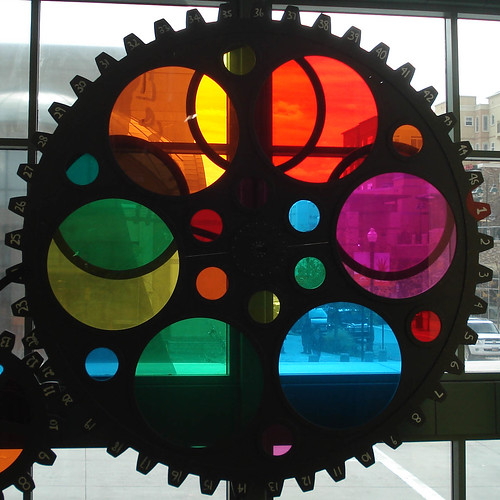PLEs are Information Systems.
Don't give me THAT look. I didn't say it was a huge breakthrough. But this, for me, is A Big Deal. Let's go back a few years.
In 2003 I was offered a job as a teacher in a Business Administration programme. They needed someone to teach e-Business, and I was a professor, could sort of speak English and was a geeky fellow, being a student in a Multimedia Engineering PhD programme. So it kinda made sense. For the next five years, I taught not only that, but also Mathematics, Calculus, Introduction to Information Systems, Business Information Systems, e-Learning systems, and a few other subjects. Someone recommended me to another Uni, and by 2008 I was teaching 20+ hours a week. A bit too much, as the Universe would promptly made clear, by having me faint midway through a lunch with my parents and partner. It was time to cut back on the hours.
Which I did almost immediately, mainly for other reasons that are the subject of a different post. So let's just say that I went from 22 to 6 hours a week. The mathematically inclined will immediately spot a hole in my finances. The Universe managed to fix this by having another job be offered to me right away. It was a challenge, so I took it. It involved heading the e-learning research department for a foundation.
All this happened just before the summer; a summer that I spent in the UK, working with a research group, and which made me, in the end, change my dissertation topic. I had discovered the wonderful world of learning technologies and PLEs. Again, another post.
So when I started my job at the foundation as e-learning projects coordinator, the first project I came up with was based on PLEs and secondary school teachers. And for the next 3 years, I would focus mostly on that project, a few bids, some collaborations, a lot of conferences and events, and PLEs. With some teaching on the side. I did manage to combine my teaching with my research, and had a couple of groups that were very interested in learning about PLEs and Web 2.0. They helped me a lot with my research, and I will be forever thankful to them. But I digress.
The point is, if there is one constant through my teaching post-2003 (before that, the constant was Chemistry) is Information Systems. I have discussed them with my students a million times, tried to come up with our own definitions, talked about computer-based IS as opposed to any IS, and so on.
Research-wise, I had been working on a proposed framework for building PLEs based on Web 2.0 tools in Higher Education, adapting that for secondary school teachers, then for entrepeneurs, and in the end designing training modules that would help anyone put together a PLE by actually learning and choosing the tools. In the meantime, I would get together from time to time with an ever-growing network of colleagues and friends, and discuss PLEs approaches and definitions until the cows came home.
I hope you can see where I'm going with this.
I clearly remember this one time, when Graham Attwell asked a bunch of us, wide-eyed, innocent researchers-to-be, what was a definition of PLE. All I could produce was: "it empowers the learner". Which is clearly NOT a definition. Graham didn't think so, I can tell you that.
The following year, I helped organise the first face-to-face PLE conference, which we appropriately and originally named "The PLE Conference", and one of the sessions was devoted to trying to come up with a definition of PLEs. I can't tell you what happened, on account of having spent most of those 3 days running up and down the building making sure everything was working as expected, but I'm told no working definition came out of it.
| And now I've realised that, even though it is not THE definition, that is what a PLE is: an Information System. Or, if you prefer, an information system. So now I'm thinking I could have said, "An information system that helps empower the learner". That sounds much better. Oh, well. It took me just 3 years. I'll finish this here (because if not I could continue rambling for ages), with the definition of IS we use in one of my classes. It says: |
"Information Systems are the means by which people interact with hardware and software in order to process data that is important to them." (Not really sure what's the exact source. Will try and find it, if there actually is one.)And, more specifically:
"An information system is a work system whose internal functions are limited to processing information by performing six types of operations: capturing, transmitting, storing, retrieving, manipulating, and displaying information." (A general, yet useful theory of Information Systems, S. Alter, 1999)
Sort of what we do with a PLE ;)
I have seen PLEs and Open Information Systems mentioned together, but I have never read anything that proposes that a PLE is actually an Information System, using those words. Of course, I may have missed it, or it might be out there and I haven't read it yet, but just wanted to get this off my chest. Done.



